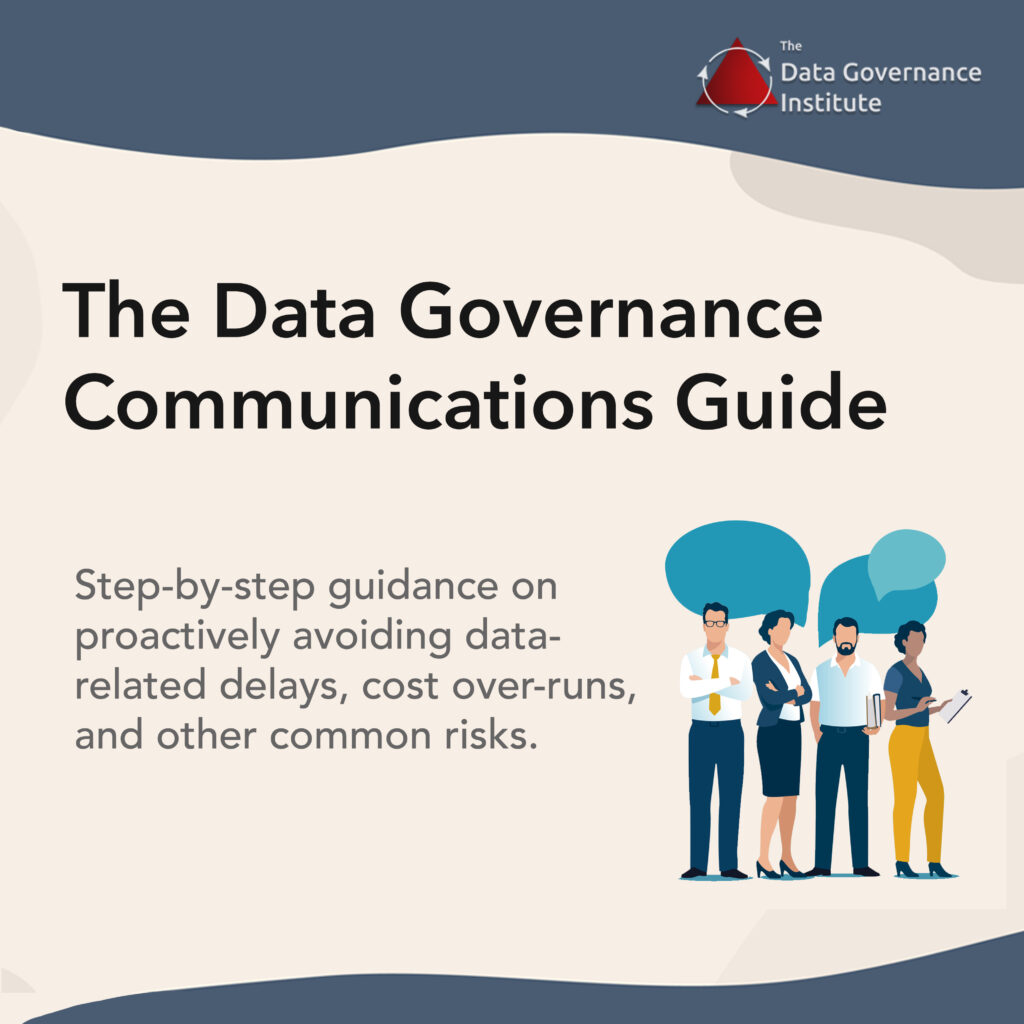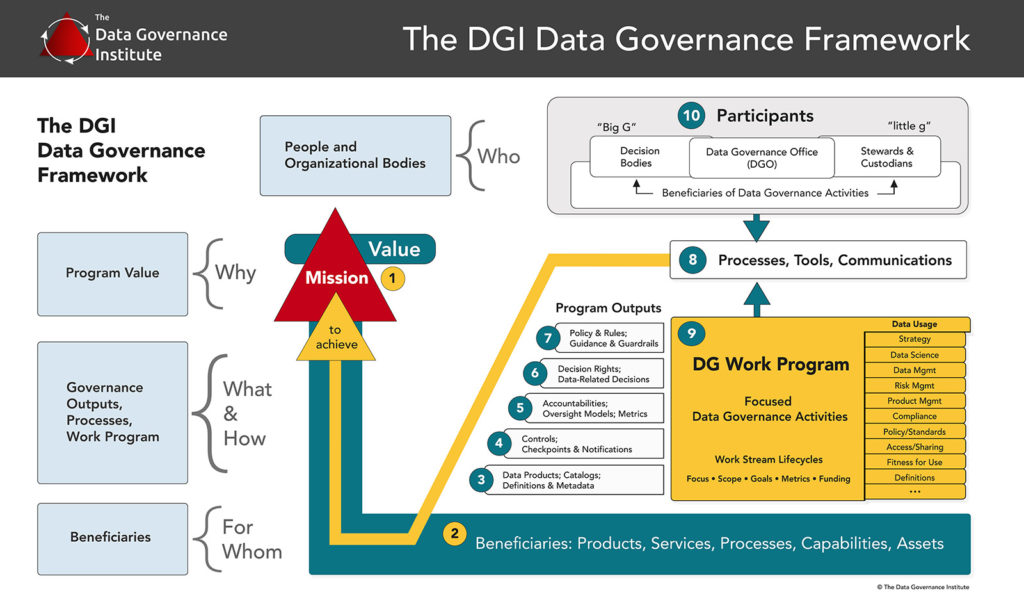Framework Component #8: Data Governance Process, Tools, and Communication
Data Governance Processes
Valuable outputs are produced by executing Data Governance processes, by using specialized tools, and through communications that demonstrate DG contributions and benefits.
Ideally, these processes should be standardized, documented, and repeatable. They should be crafted in such a way to support value delivery, while accounting for regulatory and compliance requirements for Data Management, Privacy, Security, and Access Management.

Every organization will decide how much structure and formality to bring to the process of governing data. The Data Governance Institute recommends formal, documented, repeatable procedures for:
- Aligning Policies, Requirements, and Controls
- Establishing Decision Rights
- Establishing Accountability
- Performing Stewardship
- Managing Change
- Defining Data
- Resolving Issues
- Specifying Data Quality Requirements
- Building Governance Into Technology
- Stakeholder Care
- Communications
- Measuring and Reporting Value
Data Governance Tools
While your Data Governance mission may be technology-neutral, your delivery will likely be technology-dependent. You may need to evaluate tools to
- manage your program and its outputs
- engage your participants
- capture metrics and demonstrate value
- document and share policy, rules, and decisions.
Similarly, your program may be called upon to evaluate governance capabilities and features of tools designed to address
- glossaries and metadata
- data quality
- data catalogs and products
- access and security
- privacy and confidentiality
- models, lineage, and discovery
- policy and controls
- and more
Data Governance Communications
Given the many moving parts of Data Governance, it should be no surprise to learn that Communications is essential to delivering value and having that value recognized by beneficiaries. Your DGO staff will need strong written, graphical, and verbal communication skills to
- articulate value statements
- serve as translators between business, compliance, and technical teams
- describe your program
- define processes
- capture metrics and success stories
- articulate beneficiaries’ needs and constraints
- document decisions and accountabilities
- interpret technical issues for non-technical staff
- write policies, guidance, and rules
Some Data Governance staff may need special training to recognize who they should be communicating with, what their messages should be, and when they should be reaching out to colleagues. This is especially true for staff who are assigned oversight accountabilities for specific checkpoints within a System Development Life Cycle (SDLC) or a Data Development Life Cycle (DDLC). These staff should be able to succinctly and authoritatively describe stakeholder needs; mandatory and suggested activities and controls; and the context behind their requests.
See More: Data Governance Communication Guide



